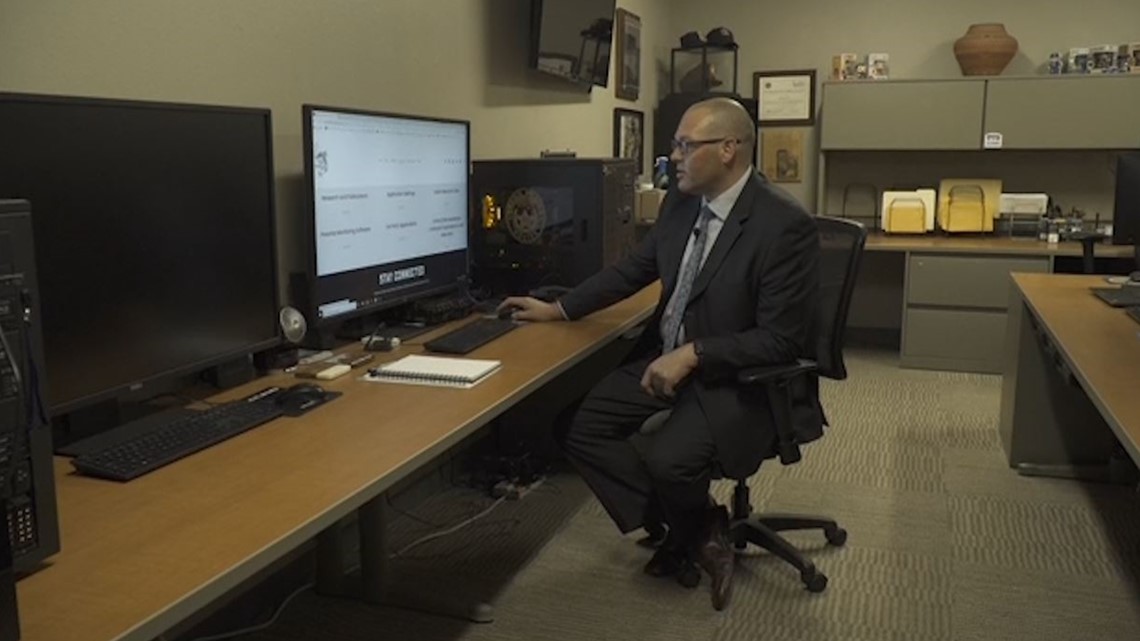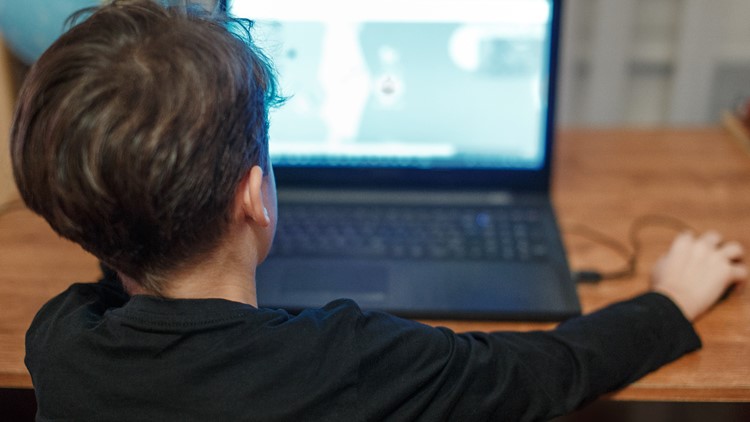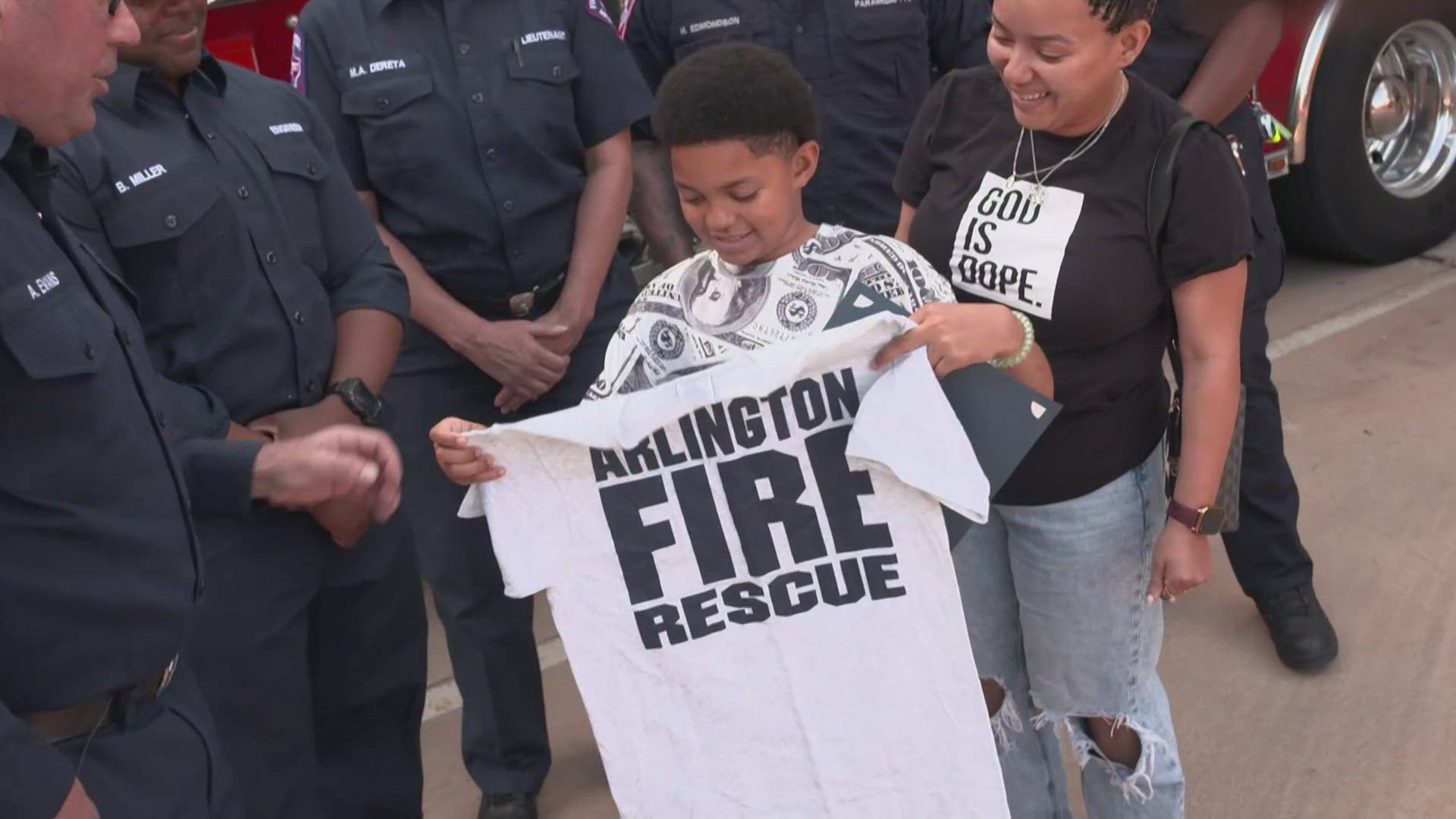DALLAS — As more and more people continue to move their lives more and more online, criminals are doing the same.
Recent reports show a rise is in suspected child sexual exploitation online, meaning there is an increasing number of adults attempting to talk to minors online and in a sexual manner.
But there are ways to protect children before this happens, and resources that exist to help those caught in the middle of it.
Brandon Poor is a detective for the Grand Prairie Police Department. In 2016, he created the Internet Crimes Against Children Unit for the police department.
Outside of the office, Poor frequently visits schools, churches and other places where he can talk to children and families about what is happening online and where they can go to get help if they need it.
"Often, people don't know that it's happening right in their backyard," Poor said.


More than 50% of kids and parents mostly or exclusively blame the child in the photo when nudes are leaked, according to international anti-human trafficking organization Thorn.
"Kids, y'know, they don't want to get in trouble,” Poor said. “They're good at hiding things. They have multiple accounts."
Starting conversations early is one of the best ways parents can take to help defend their children from the risks of growing up online, according to Thorn.
According to a Thorn survey, the window to talk to kids about these issues shrinks as time goes on. Their survey showed that 40% of kids 9-12 years old turned to offline support such as a parent, caregiver or other trusted adult when they encountered a potentially harmful experience online -- but that number drops by half for 13-17-year-olds.
"Even if the child doesn't think of themselves as a victim or as a prey, the predators are going after the vulnerable," Poor said. "They're going after the ones that won't put up any sort of resistance."
Dallas Children’s Advocacy Center provided the following tips when talking to your child about this subject:
- Be calm and confident before discussing this topic with your child.
- Do not scare your child; your tone should be neutral, educational, and empowering.
- Let your child know that you are always there for him or her and always want to protect him or her.
- Teach your child that the parts of their body that a bathing suit covers are private parts, and that no one is allowed to see or touch them there.
- Allow time for your child to process and ask you questions.
- Have your child identify five safe people they can talk to if someone ever makes them uncomfortable.
- Make talking to your child about personal safety an ongoing dialogue rather than a single conversation.
- Remember that it’s important not to interrogate children. Ask simple, open-ended questions in a calm manner: “Has anyone ever made you feel uncomfortable or scared? Has anyone ever asked you to keep a secret?”
Tarrant County's Alliance for Children said signs and symptoms of child abuse are not always obvious, especially in cases of child sexual abuse.
The organization provided the following steps that can be taken to better protect children from potential harm:
- Listen to your child: Talking with your child and listening to what he or she has to say is the first step in preventing abuse.
- Know those that have contact with your child: Most abusers are someone the child or family knows and trusts.
- Minimize opportunity: Avoid one adult/one child situations. Drop in on situations where your child may be alone with another adult (even close family members).
- Recognize the signs: Don't expect obvious signs when a child is being abused. Signs are often there, but you have to know what to look for.
- Monitor your child’s Internet and cell phone use: Offenders often use the web and text messaging to lure them into physical contact.
- Ask for help: Curb stressful situations by asking for help. Also, ask for help when children are left in your care.
- React responsibly: Be prepared to react responsibly if a child discloses abuse to you, or if you suspect or see that boundaries have been violated.
- Educate your child: Teach your child about their body and the difference between appropriate and inappropriate touches. They should also know that inappropriate touches could occur with strangers, a family member, an adult friend or an older youth. Teach your child that it is okay to tell another safe adult.
The following organizations have additional resources available surrounding these issues:



